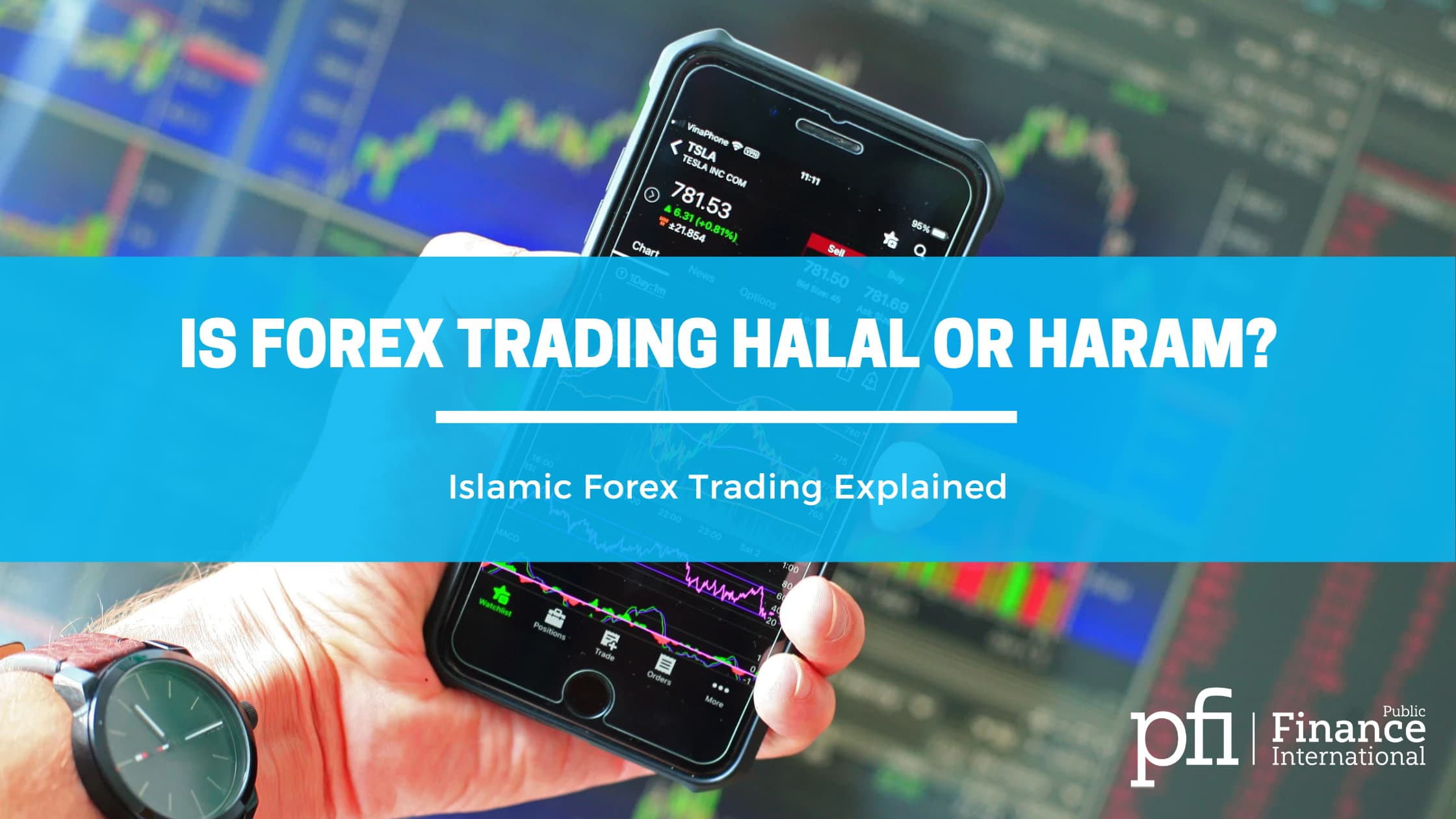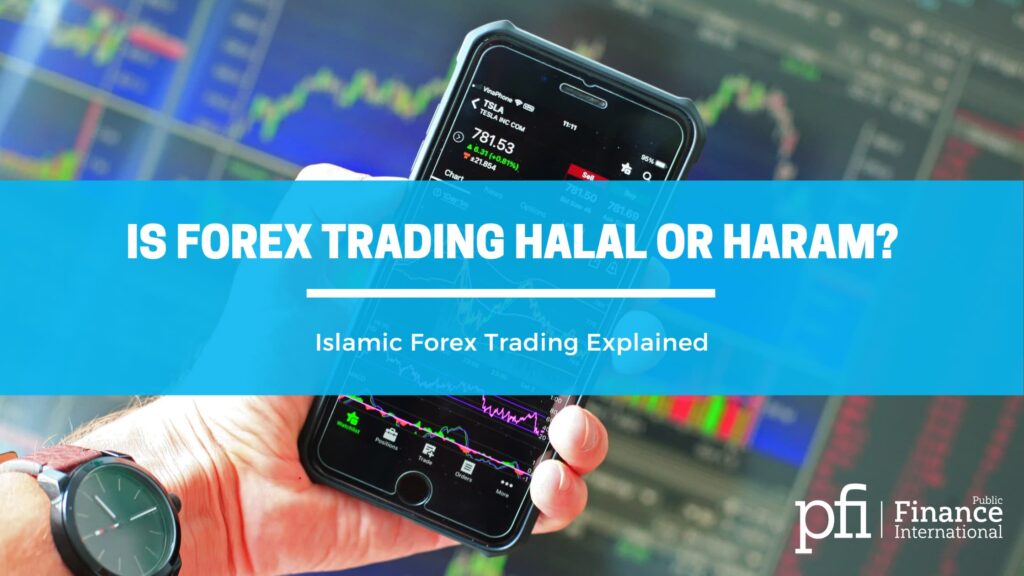This article covers the fundamentals of Islamic Forex trading and how you can trade forex in a halal way. We will also outline some important factors that Muslims who engage in online forex trading should consider. Continue reading to learn more.
It can be difficult to determine whether Forex trading is haram (unlawful) or halal (lawful). Anything that violates the teachings of the Holy Qur'an is considered “haram” or forbidden in Islamic law. Among the practices prohibited by the Holy Qur'an are gambling and riba (interest or usury).
The permissibility of Forex trading in Islam depends on various factors. For one, it depends on the individual investors' intent. If he trades forex using lawful strategies and an Islamic account, then it's halal. But if he has a regular interest-charging account, it's considered haram.

Two Types Of Forex Trading
We must first understand the two types to determine whether forex trading is halal or haram.
Spot Forex Trading
Spot FX Trading is the physical exchange of currencies on the spot. It means that the transaction happens when the trade is settled. Thus, spot forex trading is halal.
Currency Futures Trading
Currency futures contracts are contracts to purchase or sell a specific currency at a later date. They are considered forward contracts because they involve contracts to buy or sell assets at a future time.
Forward contracts are forbidden in Islam because they involve unpredictability and riskiness.
Is Forex Trading Haram?
Trading can be seen as gambling which is against Islamic principles. Forex is a little bit more complicated than gambling.
Islam views gambling as a form of risky activity in which players have no influence over the outcome and no way to determine if the chances are in their favor.
To some extent, forex does show uncertainty. So, you might think it's haram, but there's more to it.
We know riba-related financial transactions are strictly forbidden. The Islamic banking sector has grown as a result of the restriction on interest.
Swap commission means the charging of interest. But it is apparent that Islam forbids such interest rates.
Thus, forex brokers launched Islamic Forex trading to make it accessible to Muslims. Brokers who operate Islamic accounts permit investors to keep securities overnight without incurring interest or a swap commission.
Short Selling
Short selling is another issue that frequently leads to misunderstandings regarding Islamic forex.
In Forex, “short selling” exclusively refers to a trade where it is hoped that the price of a currency pair or cross would decrease. Making a short or long trade in forex has no real difference, and neither does the need for financing to complete the deal. Therefore, it is clear that shorting foreign exchange in Islam is not problematic in and of itself.
Trading Forex In a Halal Way
Forex trading and all other modern forms of monetary exchange are hotly disputed topics among Muslim academics.
The act of Forex trading has been supported and condemned by a substantial number of fatwas issued by Muslim authorities. However, Forex trading is lawful if done under the given circumstances:
- As per the Forex contract, you must execute and exchange all your trades in one
sitting—no delay between creating the agreement and completing the deal is
permitted.
No interest is charged on assertions made overnight. Thus, there is no way to earn money using Riba. - The transaction must be done without borrowing money with interest and cannot bear interest. This is so because Islamic law severely disapproves of interest-based transactions.
- Finally, the currency in question cannot be shorted for your Forex trade to be deemed halal. As we mentioned before, short selling entails taking and selling an asset that is not one's own.
Other Ways How Forex Is Halal
- Forex also provides investors with a high level of liquidity, another aspect that makes it Halal.
- Since all transactions are visible and trackable online at all times, there is no risk of fraud or theft, which can occur with other kinds of currency trading like binary options or contracts for difference (CFDs).
- Every risk is known upfront; if you know what you are getting into, there is no room for guesswork.
- Hedging is possible in forex; traders utilize this strategy to guard against potential losses by taking opposing positions in connected markets. It also fits the definition of legitimate speculation in Islam.
What Is An Islamic Forex Account?
After opening an account with a broker, customers frequently choose to open an Islamic Forex account. They are designed for usage by Islamic traders whose faith forbids earning money through interest payments.
An Islamic or Swap-Free account adheres with the Shari'ah law of Riba, which forbids the payment of interest of any type, and is a 100% Halal” Forex account.
Trading with Islamic accounts does not result in the payment or receipt of interest rates since Sharia law forbids interest accrual.
Secondly, transactions in accounts based on Islamic finance must be completed instantly, which calls for immediate currency transfers between accounts as well as the simultaneous payment of transaction fees.
Is Forex Trading Haram?
Trading can be seen as gambling which is against Islamic principles. Forex is a little bit more complicated than gambling.
Islam views gambling as a form of risky activity in which players have no influence over the outcome and no way to determine if the chances are in their favor.
To some extent, forex does show uncertainty. So, you might think it's haram, but there's more to it.
We know riba-related financial transactions are strictly forbidden. The Islamic banking sector has grown as a result of the restriction on interest.
Swap commission means the charging of interest. But it is apparent from the above grounds that Islam forbids such interest rates.
Thus, forex brokers launched Islamic Forex trading to make it profitable for Muslims. Brokers who operate in an Islamic atmosphere permit investors to keep securities overnight without incurring interest or a swap commission.
Short Selling
Short selling is another issue that frequently leads to misunderstandings regarding Islamic forex.
In Forex, “short selling” exclusively refers to a trade where it is hoped that the price of a currency pair or cross would decrease. Making a short or long trade in forex has no real difference, and neither does the need for financing to complete the deal. Therefore, it is clear that shorting foreign exchange in Islam is not problematic in and of itself.
Trading Forex In a Halal Way
Forex trading and all other modern forms of monetary exchange are hotly disputed topics among Muslim academics.
The act of Forex trading has been supported and condemned by a substantial number of fatwas issued by Muslim authorities. However, Forex trading is lawful if done under the given circumstances:
- As per the Forex contract, you must execute and exchange all your trades in one
sitting—no delay between creating the agreement and completing the deal is
permitted.
No interest is charged on assertions made overnight. Thus, there is no way to earn money using Riba. - The transaction must be done without borrowing money with interest and cannot bear interest. This is so because Islamic law severely disapproves of interest-based transactions.
- Finally, the currency in question cannot be shorted for your Forex trade to be deemed halal. As we mentioned before, short selling entails taking and selling an asset that is not one's own.
Other Ways How Forex Is Halal
- Forex also provides investors with a high level of liquidity, another aspect that makes it Halal.
- Since all transactions are visible and trackable online at all times, there is no risk of fraud or theft, which can occur with other kinds of currency trading like binary options or contracts for difference (CFDs).
- Every risk is known upfront; if you know what you are getting into, there is no room for guesswork.
- Hedging is possible in forex; traders utilize this strategy to guard against potential losses by taking opposing positions in connected markets. It also fits the definition of legitimate speculation in Islam.
What Is An Islamic Forex Account?
After opening an account with a broker, customers frequently choose to open an Islamic Forex account. They are designed for usage by Islamic traders whose faith forbids earning money through interest payments.
An Islamic or Swap-Free account adheres with the Shari'ah law of Riba, which forbids the payment of interest of any type, and is a “100% Halal” Forex account.
Trading with Islamic accounts does not result in the payment or receipt of interest rates since Sharia law forbids interest accrual.
Secondly, transactions in accounts based on Islamic finance must be completed instantly, which calls for immediate currency transfers between accounts as well as the simultaneous payment of transaction fees.
Pros and Cons Of Islamic Forex Trading
Listed below are the pros and cons of Interest-free trading:
Pros
- Muslim investors have access to the stock market, where they can grow their wealth by making smart trades as the financial market changes.
- Forex companies provide customized accounts for traders when they express a need for them.
- Muslims who run businesses that deal in foreign currencies might use forex trading to reduce their risks.
Cons
- If the trader gets greedy and reckless, it might be considered gambling and will be haram.
Conclusion
We recommend Muslims open Forex accounts that adhere to Shariah law. These swap-free accounts, commonly referred to as Islamic Forex accounts are halal trading accounts where interest is not accrued, gathered, or paid. Forward contracts and futures are not used in these accounts.
In summary, sharia law has prohibited forex trading and an Islamic swap-free variant of forex trading that is entirely legal and halal for Muslims to invest in.
